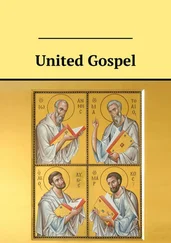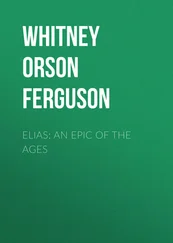Orson Whitney - Gospel Themes
Здесь есть возможность читать онлайн «Orson Whitney - Gospel Themes» — ознакомительный отрывок электронной книги совершенно бесплатно, а после прочтения отрывка купить полную версию. В некоторых случаях можно слушать аудио, скачать через торрент в формате fb2 и присутствует краткое содержание. Жанр: foreign_prose, foreign_religion, Философия, foreign_psychology, foreign_antique, на английском языке. Описание произведения, (предисловие) а так же отзывы посетителей доступны на портале библиотеки ЛибКат.
- Название:Gospel Themes
- Автор:
- Жанр:
- Год:неизвестен
- ISBN:нет данных
- Рейтинг книги:3 / 5. Голосов: 1
-
Избранное:Добавить в избранное
- Отзывы:
-
Ваша оценка:
- 60
- 1
- 2
- 3
- 4
- 5
Gospel Themes: краткое содержание, описание и аннотация
Предлагаем к чтению аннотацию, описание, краткое содержание или предисловие (зависит от того, что написал сам автор книги «Gospel Themes»). Если вы не нашли необходимую информацию о книге — напишите в комментариях, мы постараемся отыскать её.
Gospel Themes — читать онлайн ознакомительный отрывок
Ниже представлен текст книги, разбитый по страницам. Система сохранения места последней прочитанной страницы, позволяет с удобством читать онлайн бесплатно книгу «Gospel Themes», без необходимости каждый раз заново искать на чём Вы остановились. Поставьте закладку, и сможете в любой момент перейти на страницу, на которой закончили чтение.
Интервал:
Закладка:
A Prearranged Plan.—It is evident from the revelations of God, particularly in modern times, that everything connected with man's mortal pilgrimage was understood and arranged before that pilgrimage began. Not alone was the gospel instituted: an executor was appointed to put it into effect. In other words, the machinery was constructed, and the power then turned on. The fall being foreseen, the redemption was ordained. Eternal progress and everlasting glory were the objects in view, and over the glad prospect, in spite of the pain and sorrow that must necessarily intervene, "the Morning Stars sang together, and all the Sons of God shouted for joy" (Job 38:7).
CHAPTER III
Essentials to Progress.—The story of God embraces the fall as well as the redemption of man. Both these mighty vicissitudes are steps in the march of human progress. The fall was just as necessary as the redemption, in order to make operative and effective the laws and ordinances of the gospel. In other words, the fall prepared the way for the redemption. How could redemption have been, had there been nothing to redeem? Of what use were a gospel of salvation where nothing needed to be saved?
Innocent Ignorance.—Had the spirits of men, "all innocent in the beginning," remained where they were and just as they were, they would have had no need to exercise faith unto salvation. They would have had no need to repent or to be baptized, having no evil practices to turn away from, and no uncleanness to be washed away. But they would have remained ignorant as well as innocent, and without any further progression. The following passage from the Book of Mormon illustrates this point:
"And now, behold, if Adam had not transgressed, he would not have fallen; but he would have remained in the Garden of Eden. And all things which were created must have remained in the same state which they were after they were created; and they must have remained forever and had no end. And they would have had no children; wherefore, they would have remained in a state of innocence, having no joy, for they knew no misery; doing no good, for they knew no sin. But behold, all things have been done in the wisdom of him who knoweth all things. Adam fell that men might be; and men are, that they might have joy" (2 Ne. 2:22-25).
This passage, of course, refers directly to Adam's condition in the Garden of Eden, and not to the spirit life preceding that period of innocent ignorance. But the fact remains that man, in the spirit life, needed experience in mortality, in order to become wiser, as much as he needed a body for purposes of progression and eternal increase.
Adam Not Deceived.—When Adam and Eve partook of the forbidden fruit, it was the woman who was beguiled by Satan and induced to go contrary to the divine command. The man was not deceived. Adam was but telling the truth when he answered the Lord, "The woman whom thou gavest to be with me, she gave me of the tree, and I did eat" (Gen. 3:12). Those who satirize Father Adam for this reply, imputing to him an unworthy motive, a desire to evade responsibility and "hide behind the woman in the case," take but a superficial view of the subject. Adam was not trying to evade the issue: he was simply stating the fact. The Lord wanted the truth, and no fable would suffice, however polite, in the opinion of shallow wits or would-be chivalrous wisacres, it might have been to invent one, in order to shield the fair transgressor.
A Deliberate Transgression.—Adam, after Eve had transgressed, did likewise in order to carry out a divine command previously given—the command to multiply and replenish the earth (Gen. 1:28). Eve, by her act, had separated herself from her husband, and made it impossible, unless he followed her and also became mortal, to carry out God's original behest. This was Adam's motive. He was facing a dilemma. He must make choice between two divine commands, and doubtless felt that he could not consistently do otherwise than as he did. He disobeyed in order to obey, retrieving, so far as he possibly could, the situation resulting from Eve's disobedience. He did it wittingly, deliberately, undeceived as to the consequences, realizing that in no other way could he carry out God's first command and become the progenitor of the human race. Adam and Eve, with their eyes open, rejoiced over what had befallen them, recognizing it as part of a preordained plan to people the earth with their posterity, and afford to a world of waiting spirits the opportunity, long anticipated, of taking earthly tabernacles and starting out upon their great pilgrimage to perfection.
Adam and Eve Rejoice.—"And in that day Adam blessed God and was filled, and began to prophesy concerning all the families of the earth, saying: Blessed be the name of God, for because of my transgression my eyes are opened, and in this life I shall have joy, and again in the flesh I shall see God.
"And Eve, his wife, heard all these things and was glad, saying: Were it not for our transgression we never should have had seed, and never should have known good and evil, and the joy of our redemption, and the eternal life which God giveth unto all the obedient."—("Pearl of Great Price," Book of Moses, 5:10,11.)
"Adam fell that man might be, and man is that he might have joy." But there would be no joy, no progress, no eternal life for fallen man—only pain, sorrow, and everlasting banishment from God's presence, had Christ not died to nullify the ill effects of Adam's act, and lift man up from his fallen condition.
Human Standards and Divine Dispensations.—Why, it may be asked, did God place Adam and Eve in so seemingly contradictory a position? Why were they forbidden to do what they had manifestly come to do, and which had to be done in order to carry out the divine purpose? For that is the problem in a nutshell, as it appears to human eyes. I can only answer in the words of Nephi: "All things have been done in the wisdom of him who knoweth all things." Man cannot sit in judgment upon his Maker, nor measure by human standards divine dispensations. The God who gives life, and takes it, without committing murder, can command today and countermand tomorrow, and yet remain consistent and unchangeable. In a world where faith is necessary to progress, and where premature knowledge would prevent progress by swallowing up faith, by destroying the opportunity for its exercise, man must not expect to know all things. That calamities and sacrifices bring forth blessings, is apparent to observation and experience; but the deep why and wherefore of it all remains a mystery. Adam's fall and Christ's atonement were fearful calamities, from the human point of view; but wonderful benefits and advantages accrued therefrom. Just why such sacrifices have to be made, however, in order that such blessings may come, is too profound a problem for the finite mind to solve.
Spiritual and Temporal Death.—The fall brought man into the world—into this state of mortality; but it also brought death, with all its sad concomitants. Not such a death as the righteous now contemplate, and such as both righteous and unrighteous must undergo, as a change preparatory to resurrection. There was no resurrection when Adam fell—not upon this planet—nothing but death, resting like a pall over the prospective human race. Adam and Eve, after the fall, were spiritually dead, and were doomed to the temporal death as well—the dissolution of the body—and they had entailed this fate upon their posterity. Hell had triumphed over man's, or rather woman's, weakness. Life was dead, death reigned, and demons held high carnival.
The World in Pawn.—Adam's transgression had put the world in pawn. The name of the pawnbroker was death, and his claim was twofold. Death held all things in his grasp, and there was no help for it this side of heaven. No part of what had been pledged could be used as the means of redemption. Adam could not redeem himself, great and mighty as he was—in the spirit; for he was no other than Michael the archangel, leader of the hosts of heaven. But this puissant Michael was now a weak, frail, mortal man, under the penalty of a broken law, and powerless to repair the injury that had been wrought. He and the race that was to spring from him were utterly lost, unless the Almighty One would intervene, and do for them what they could not do for themselves. If man could have redeemed himself, it would have been required of him; but because self-redemption was impossible, a Redeemer had to be provided.
Читать дальшеИнтервал:
Закладка:
Похожие книги на «Gospel Themes»
Представляем Вашему вниманию похожие книги на «Gospel Themes» списком для выбора. Мы отобрали схожую по названию и смыслу литературу в надежде предоставить читателям больше вариантов отыскать новые, интересные, ещё непрочитанные произведения.
Обсуждение, отзывы о книге «Gospel Themes» и просто собственные мнения читателей. Оставьте ваши комментарии, напишите, что Вы думаете о произведении, его смысле или главных героях. Укажите что конкретно понравилось, а что нет, и почему Вы так считаете.












